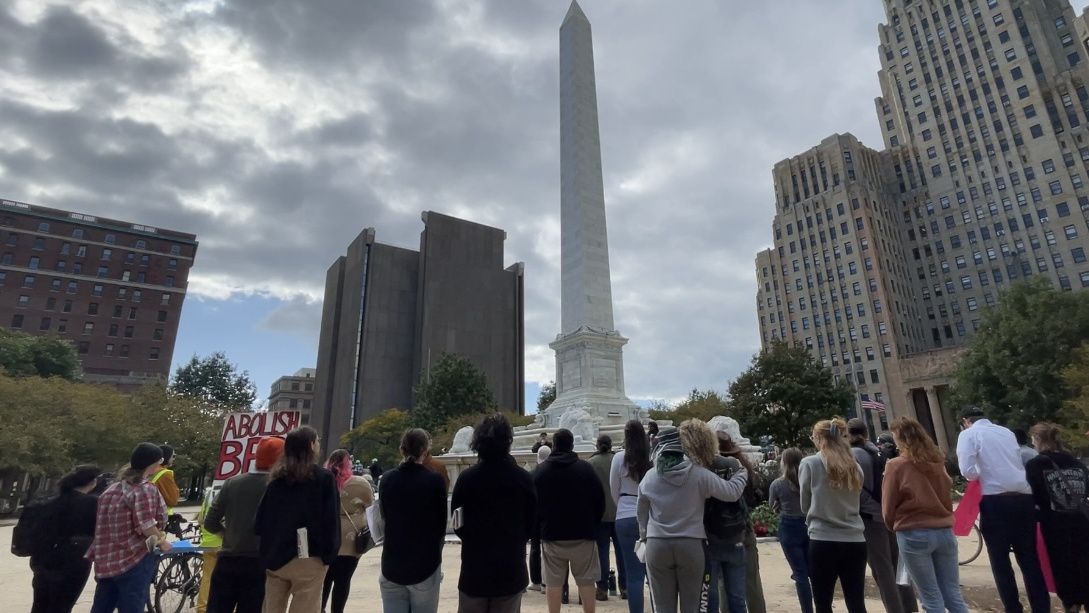Last month, the Buffalo Police Department said officers responded to a home on Tonawanda Street on the morning of September 23 for a call of an armed man with people inside the house.
Police say a 36-year-old man was holding a pellet long gun and ignored commands to put it down. That's when police say an officer fired his weapon, hitting the man in the shoulder. He was taken to Erie County Medical Center in critical condition.
Police later said they found multiple illegally owned guns in the man's house. The officer who fired the shot was placed on administrative leave per department policy during the investigation.
In recent years though, several encounters with police all across the country have turned tragic. There’s been a renewed focus in recent years on how first responders across the country handle mental health crises.
Organizations and the family of the victim came together Saturday, two weeks after the incident. They invited the victim’s sister to share her remarks on the situation.
"...We are fed up with this," event organizer Jennifer Page said.
“A moment of crisis has now resulted in lifelong trauma at the hands of the Buffalo police,” sister Joy Battison added. “The incident involving a suicidal man shot by police is a heartbreaking reminder of the challenges we face as a society.”
Advocating for social workers to be first responders when mental health calls are made, Community Responder Coalition member Adam Selon, a social worker, has spent 15 years in the field. He says more changes are needed to provide better care for these mental health calls.
“I believe everybody needs resources and training and support,” Selon said. “So really this is not even about defunding police or anything. This is about creating a response and having a society that recognizes that mental health happens.”
Participants say they believe implementing more trained crisis responders at the scene would not only assist in more effective and safer responses, but also destigmatize the topic of mental health.
“The police don't have all the resources and they're under a lot of pressure. They deal with a lot of mental health,” Selon said. “And this model would send a peer specialist, an EMT or a trained crisis responder that are really saving countless lives and taxpayer dollars.”
Event organizers say this is just the beginning of the next phase in hopes of making the community more aware, but also put pressure on the city of Buffalo to make changes to minimize the risk of tragic outcomes.
“Let us use this tragedy as a catalyst for change,” Battison said. “We can't continue to lose our loved ones to violence when we can implement meaningful changes and policies that save lives.”
Spectrum News 1 has reached out to the Buffalo Police Department for further comment and have not yet received a response.





